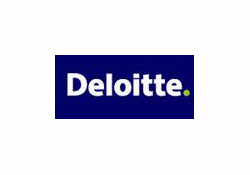Deloitte released a report last week where they explore the role Blockchain technology can play in loyalty programs. The basis of the report is that many loyalty programs are not realising their full potential due to low client retention and redemption rates, time delays, and high costs.
They believe the core driver of a members’ lack of activity is ‘the paucity of uniform management systems’. By that they mean small loyalty programs acting independently generally don’t deliver enough meaningful value or accessibility to generate sustainable engagement. Loyalty & Reward Co support this position.
“A potential solution would be to integrate disparate programs into an interlinked loyalty network,’ the report suggests, meaning a large number of small programs banding together into a much bigger coalition. Making the assumption that the key element preventing this is ‘inconsistent digital infrastructure and obligations to protect competitive proprietary information as well as customers’ personally identifiable information,’ they then go on to argue that Blockchain technology is perfectly designed to solve all of the issues holding the industry back.
It’s true that the development of a meaningful coalition program does have complex technical challenges, but that hasn’t stopped large coalition programs from evolving, such as Qantas Frequent Flyer, Velocity Frequent Flyer, Flybuys, Payback, Nectar and many more. Certainly Blockchain stands to provide some new technological advantages for system integration across companies, but is it a panacea for all that is wrong with the industry?
A major assumption made in the report is that a large number of smaller programs would pro-activelychoose to create ‘an interlinked loyalty network’ independent of the existing coalition giants. Loyalty & Reward Co challange this assumption.Would a fashion retailer be OK with providing a member with points which they later spend at a fast food outlet? Who would control the member communications? Who would decide which brands can join and which aren’t suitable?
Development of a loyalty network has massive complexities well beyond the technology. To think the technology is preventing such a phenomenon to manifest, and that the arrival of Blockchain could lead to a new loyalty paradigm seems naïve at best.
It stands to reason the loyalty programs which are likely to benefit most from this new technology are the ones which already have ‘interlinked loyalty networks,’ plus the budgets to innovate with new technology, which is the coalitions themselves.
Philip Shelper is a specialist loyalty consultant based in Sydney, Australia who obsesses about everything to do with loyalty and rewards. His company Loyalty & Reward Co are a leading loyalty consulting firm.
Let’s connect! https://au.linkedin.com/in/philipshelper


